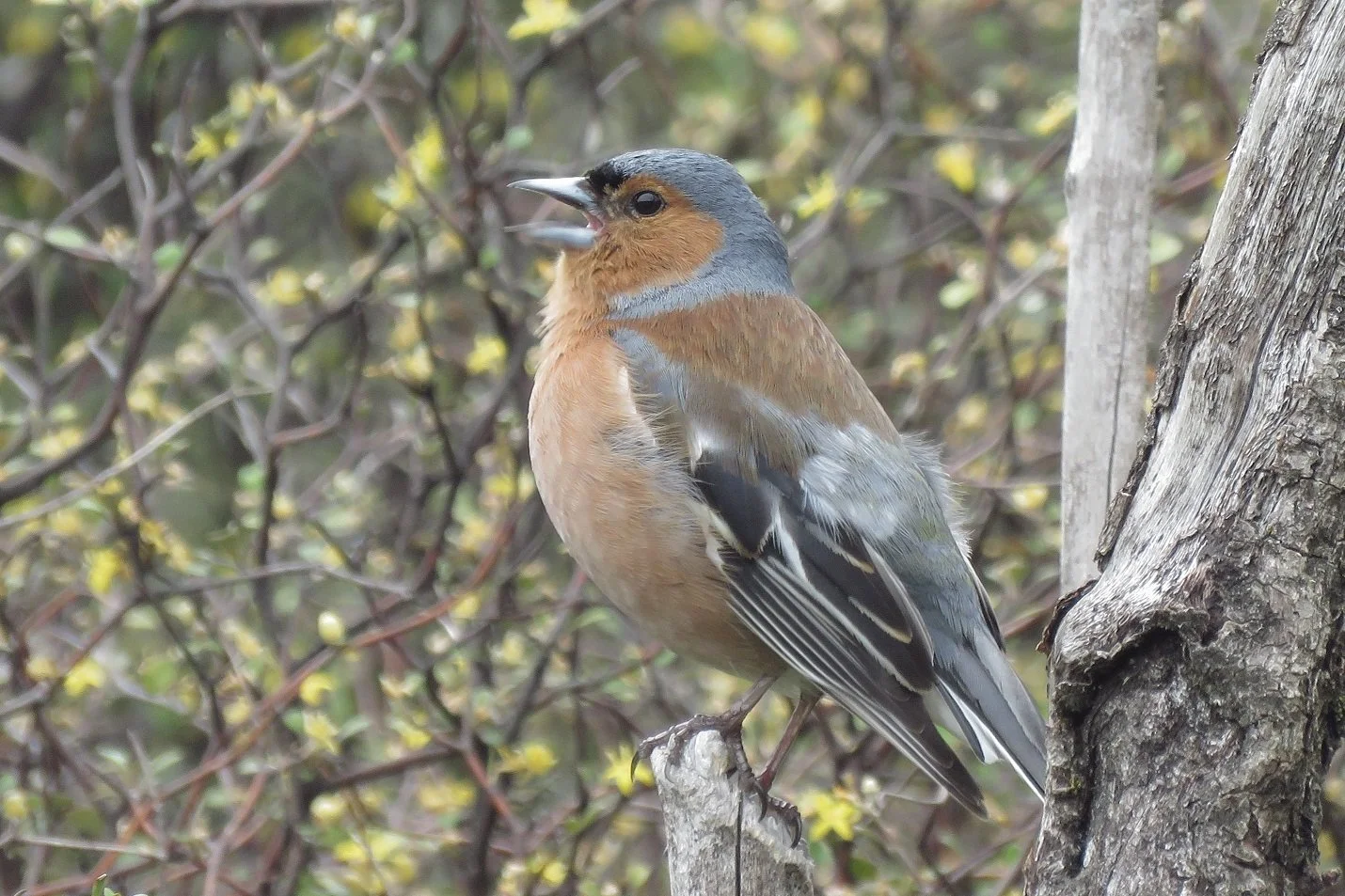Tips for spring bird watching
What are Dunedin’s birds doing at this time of the year? Mary Thompson from Birds NZ shares some tips for bird watching (and listening) during spring.
Written by Mary Thompson, Birds New Zealand Otago
Male chaffinch singing. Credit: Mary Thompson.
Spring is for singing
Spring is the season for bird-listening as well as -watching. Now is the time to listen and look for male birds singing with gusto on prominent perches, often on top-most branches or rooftops. They are advertising for a mate and claiming their nesting territory. Birds to listen and look for are the chaffinch, dunnock, song thrush and blackbird. Try also to spot our endemic grey warbler/riroriro, one of New Zealand’s smallest birds, flitting about the branchlets of shrubs looking for insects. These birds can be recognised by their song – a continuous up and down ‘squeaky gate’ warble.
Grey warbler/riroriro. Credit: Craig Mckenzie.
Listen for the arrival of shining cuckoos/pīpīwharauroa. These lovely little birds fly all the way back to New Zealand from their wintering grounds in the Solomon Islands and New Guinea. They start arriving back in September. Who will be the first to hear them? Shining cuckoos are heard more often than seen. Their presence is easily confirmed by their distinctive call – a repeated upwardly-slurred whistle ending with a downward note. Like all cuckoos, they lay their eggs in the nests of other birds. The shining cuckoo lay its egg in the grey warbler’s nest and leaves the tiny warbler foster parents to feed and bring up their chick. This is an amazing sight, so keep looking and you may be lucky.
Fledgling shining cuckoo being fed by grey warbler foster parent. Credit: Malcolm Pullman (NZ Birds Online).
Spring is for nesting
Watch for birds carrying building materials such as straw, mud or moss for their nests. Then watch for very busy parent birds carrying worms, grubs and caterpillars to feed their hungry chicks. Nests are usually well concealed, but if you happen to find one, please don’t disturb it and only watch from a distance. Unfortunately, rats and stoats are skilful at finding nests and devouring eggs and chicks. That is why the predator trapping programmes such as that promoted by City Sanctuary are so important.
A fantail/pīwakwaka nest hanging in a tree. Credit: City Sanctuary.
Spring is for enjoying the birds around you
Remember to take a walk through the Town Belt to enjoy the birds this spring, and also take time to count for conservation. Stop at any or all of the 10 Bird Count Stations that make up the Bird Count Trail, which is a long-term bird monitoring scheme set up by Birds NZ and City Sanctuary. It’s easy: count all the birds you see and hear around you for five minutes, record and submit. All the counts will be combined to find trends in bird numbers, which will help to track the progress of habitat restoration in the Town Belt.
One of the signs on the Town Belt Bird Count Trail. Credit: Jemma Wells.





